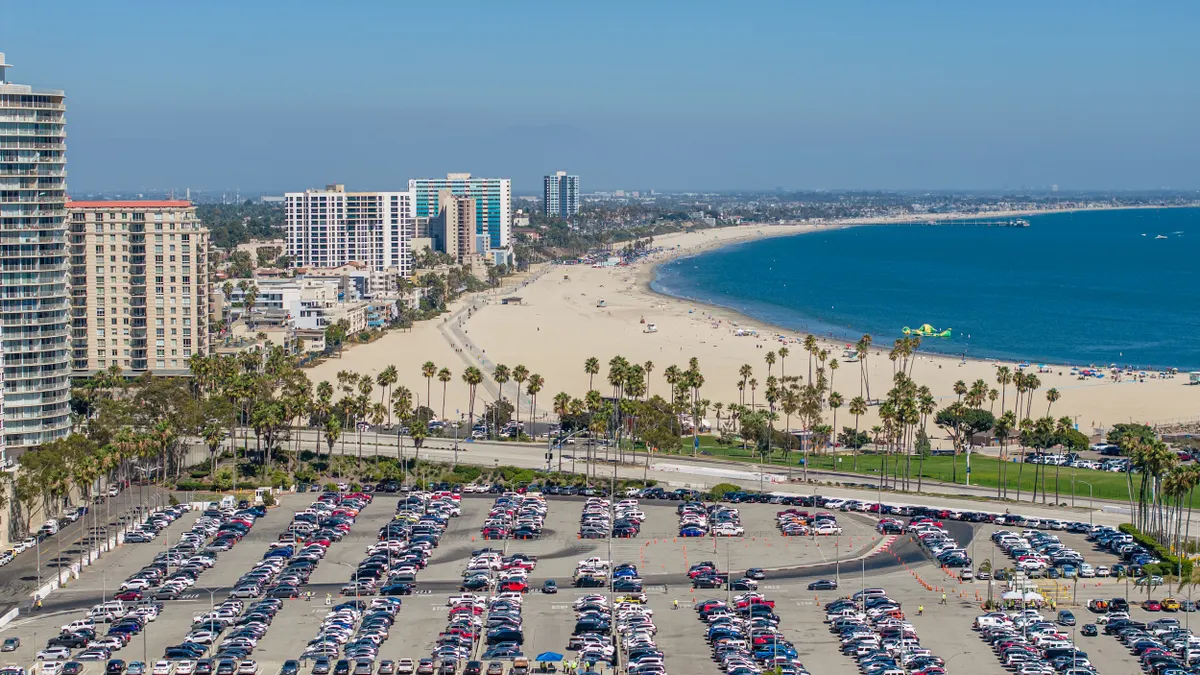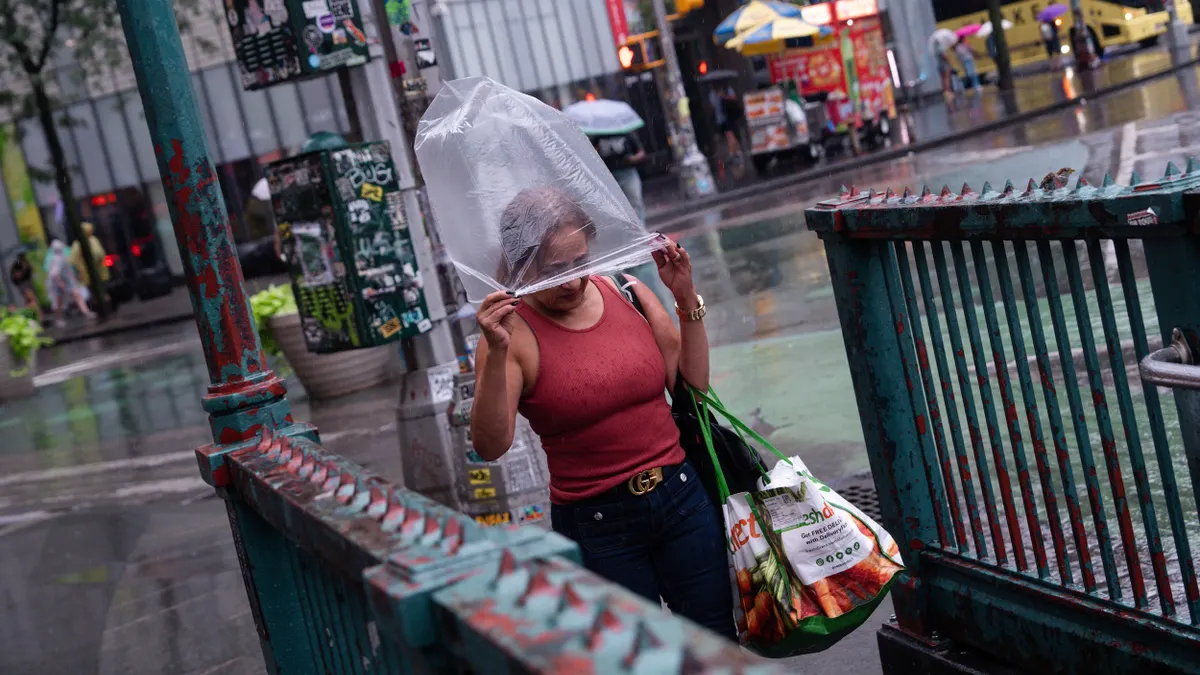With growing discussion of feminism and last year’s explosion of the "Me Too" movement, 2018 increasingly is being dubbed the year of the woman. But before that movement even gained momentum last fall, two Philadelphia-based women had been working on a way to amplify women’s voices in urban settings.
Katrina Johnston-Zimmerman and Meegan Denenberg founded the Women Led Cities Initiative to tackle the inequity in cities that impacts how women and girls live, get around and thrive in urban environments. The co-founders are drawn to urban settings in part because of the potential for greater impact, considering that the U.S. Census Bureau estimates about 63% of the country's population lives in cities. "It's an impact strategy because [cities] are so crucial to our lives right now, everywhere around the world," said Johnston-Zimmerman. "Women haven't really been in charge of our cities despite the fact that we are over 50% of the species. We have so much to offer."
The initiative brings together women from all areas of urbanism to collaborate on the conversation of feminist city policy and more inclusive planning and design. "It’s not just about the public sector or the private sector ... It’s about the leadership they can provide in each of their spaces, understanding that they’re all working toward something and that they can lean on each other and come up with shared strategies," said Johnston-Zimmerman.
Participants hail from such fields as architecture, city planning and grassroots organizations. The mix makes the initiative different because urbanism "is normally isolated into different fields or different echelons that seem to have all the say in how cities are shaped."
"It’s not just about the public sector or the private sector ... It’s about the leadership they can provide in each of their spaces, understanding that they’re all working toward something and that they can lean on each other and come up with shared strategies."

Katrina Johnston-Zimmerman
Co-founder, Women Led Cities
One of the organization’s primary values highlights that a feminist city is a humanist city, meaning that promoting planning for women and girls equates to better planning for everyone. The concept behind Women Led Cities is not to squelch the voices of well-represented groups such as men, but rather to give a megaphone, so to speak, to women who traditionally experience trouble being heard and becoming a part of the discussions that shape cities.
“[We’re] addressing the construct that was developed by a particular type of person for centuries that we're all trying to abide by and live up to. Were deconstructing that and allowing women to develop the best practices of how to move forward ... and [leverage] the power of our femininity and all that it encompasses, and how it can be a strength," Denenberg said.
Women Led Cities held its inaugural working conference last month, and brought together about 30 women in various urbanism professions to start the conversation about what a women-led Philadelphia would look like. The collaboration involved identifying issues and coming up with action plans to boost representation and equity in city design. The event "really sort of cohered it and brought more clarity to" which needs Women Led Cities hopes to meet, Denenberg said.
The organization aims to develop a "network of women in a variety of industries and with really diverse backgrounds to be able to develop an ecosystem" to cultivate projects in cities and overcome the "ridiculous trope that if you want to hire a woman or find women-led organizations, there aren't any," Denenberg said.
Denenberg and Johnston-Zimmerman initially intended to expand the initiative into other cities soon after launch, but after the first pilot program they decided to do a few more pilot sessions in Philadelphia with the women from the first cohort, as well as others who will be added. They're working toward opening up the experience to all women next year at a national conference. The Women Led Cities workshops and various events will lead to open-source programming to guide other cities' entrepreneurs in starting the process of being a women-led city.
"We really want to figure out what the framework of this program is going to be in order to translate this to other cities. Every city has a different personality and ecosystem," Denenberg said. Although each city ultimately would have its own specially catered program, "We also want to build bridges among the different cities so women can start talking beyond their own specific ecosystem," she said.
The co-founders strive to embrace and capitalize on human differences. "There are so many differences between all of us. When we have that kind of level of diversity of networks, of strengths, of access to rely on each other in that way ... That is one of the most impactful things I learned" at the inaugural event, said Johnston-Zimmerman.
Although feminist organizations and women-led movements existed before, they largely didn't take into account "the safe spaces where women can acknowledge the differences among each other. The idea that we’re all supposed to dress in exactly the same way and feel the same way is going to be an inherent detriment if we can't actually understand differences," Denenberg said. "Once we can develop that safe space, I think women are going to have more progression as a collective to move forward and be able to support each other in ways that we haven't necessarily acknowledged before."


















